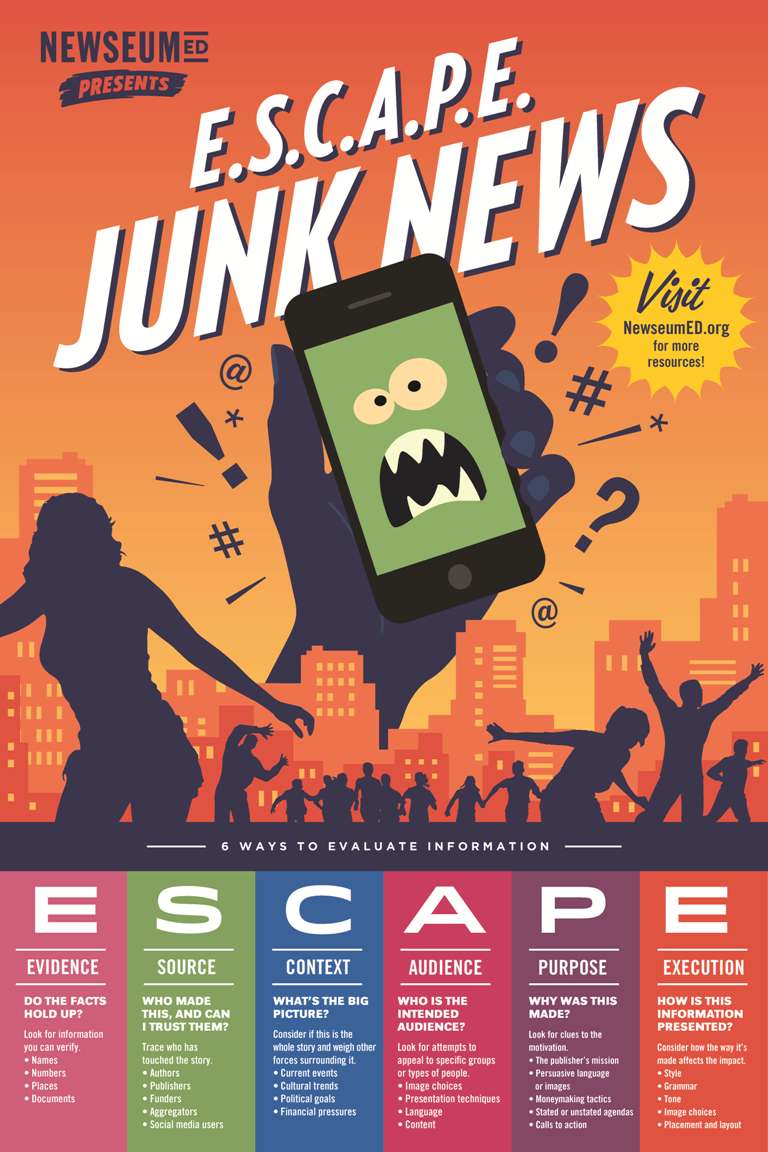An Oxford research project has confirmed what anybody could have told them: the people who voted for Donald Trump are the most “susceptible” to junk news — that is, news with scanty if any foundation in verifiable facts.
“Junk news sources are defined as deliberately publishing misleading, deceptive or incorrect information purporting to be real news about politics, economics or culture. This type of content can include various forms of extremist, sensationalist and conspiratorial material, as well as masked commentary and fake news,” says the report.
Working for a year and a half, the Computational Propaganda Project identified junk news and its locations online. Then they viewed about 13,500 Twitter feeds and nearly 48,000 Facebook pages.
They concluded that: “On Twitter, the Trump support group shared content from 96 per cent of the junk news sources on the researchers’ watch list. Moreover, the Trump support group accounted for 55 per cent of all the junk news traffic in the sample. On Facebook, the hard conservative group shared 91 per cent of the junk news sites on the watch list, and accounted for 58 per cent of junk news traffic in the sample.”
Researcher Lisa-Maria Neudert said: “We find that Trump supporters, hard conservatives and right-wing groups are circulating more junk news than other groups.”
Professor Phil Howard, the Project’s director, said: “It appears that only one part of the political spectrum — the far right — is really the target for extremist, sensational and conspiratorial content. Over social media, moderates and centrists tend not to be as susceptible.”
Prof Howard called this disparity an “upside” but apparently he has not seen the latest report from the Southern Poverty Law Centre. Titled, “The Alt-Right Is Killing People,” the paper describes more than 100 murders (often mass murders) committed by young men who were influenced by the junk news spewed on alt-right websites.
While police and news media warn about Islamic “radicalization,” right wing radicalization gets much less attention, even though the SPLC “…counted over 100 people killed or injured by alleged perpetrators influenced by the so-called ‘alt-right’ — a movement that continues to access the mainstream and reach young recruits.”
For example, take “Elliot Rodger, the 22-year-old who in 2014 killed seven in Isla Vista, California, after uploading a sprawling manifesto filled with hatred of young women and interracial couples…”
Furthermore, “Including Rodger’s murderous rampage there have been at least 13 alt-right related fatal episodes, leaving 43 dead and more than 60 injured (see list). Nine of the 12 incidents counted here occurred in 2017 alone, making last year the most violent year for the movement.”
Like the Daesh (ISIS) recruiters, the so-called “alt-right” recruiters target young, disaffected, mostly males, who are struggling to find jobs or sweethearts. They play on specific longings and grievances, and guide young men’s anguish towards blaming “others,” outsiders, rather than encouraging them to look at the economic and social systems that frame their lives.
Taken together, these two important research reports create a strong case for teaching media literacy, or at least for re-examining public concerns about total freedom of speech on social media. Many intellectuals argue that freedom of speech is sacred, that the arguments we most abhor are the ones we most need to protect, for the sake of our own future arguments that others may detest. Of course, much depends on whose ox is getting gored: Canada bans some kinds of hate speech that the U.S. permits.
On the other hand, while the Constitution protects free speech, capitalism’s “Buyer beware” actually punishes gullibility. What people read turns out to be as important as what they eat. Unfortunately, we can’t return the garbage if we don’t like what deluded people do while under the influence of misleading, deceptive, sensationalist and extremist articles posted to social media.
Most civilized nations require information labels on processed food, describing the contents. Back in the Internet’s early days, volunteer organizations used to rate websites according to their suitability for polite company. I suggest that websites like Breitbart and The Daily Stormer should carry health warnings that say, “Consuming this content could be harmful to your mental health and may cause behaviour that could lead to life in prison.”
That may sound like a joke, but I’m quite serious. The SPLC warns that violence incitement and street violence have actually increased since the 2016 election. In the U.S., a country with more than 300 millions guns, “the alt-right is redoubling its efforts at youth recruitment, intensifying its rhetoric and calling for radical, individual action.” Time to call out the army, and put 24-hour guards around every synagogue, temple, mosque and African-American church in the United States.
Image: Newseum
Like this article? Please chip in to keep stories like these coming.




